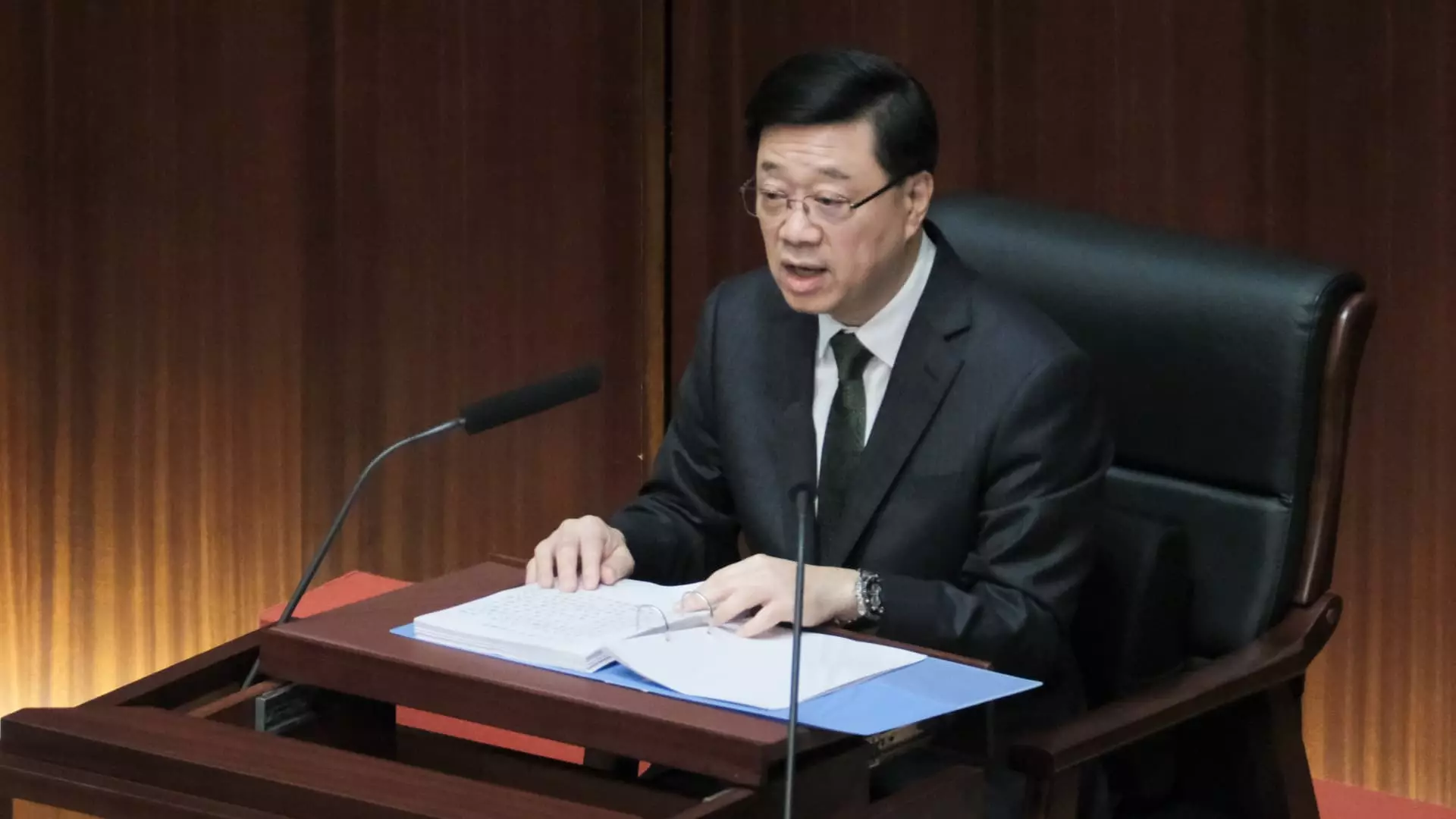In a recent policy address, Hong Kong Chief Executive John Lee underscored the escalating housing affordability crisis plaguing the city. This issue, labeled as a “matter of great public concern,” reflects the difficulties faced by individuals and families in securing adequate housing within the bustling metropolis. Lee’s proposals aim primarily at alleviating the housing burden for younger residents, particularly those under 40, amid a backdrop of towering property prices and an oppressive rental market that has pushed many into precarious living conditions.
The urgency of tackling Hong Kong’s housing crisis cannot be overstated. The city has been ranked as the least affordable place to live for over a decade, according to the 2024 Demographia International Housing Affordability report. The landscape of subpar housing, illustrated by the proliferation of “shoe-box sized” subdivided flats, reveals one facet of the broader problem—making the need for comprehensive housing reform even more critical.
In a bid to facilitate easier access to subsidized housing, Lee proposed several measures specifically aimed at young adults. By granting an additional ballot number to applicants below the age of 40 for the Home Ownership Scheme, the government intends to enhance their prospects of securing affordable housing. This initiative has been prompted by the alarming trend where many young residents feel compelled to forgo career advancements or salary increases to maintain eligibility for public housing options, highlighting a paradoxical scenario where aspirations for professional growth are undermined by the harsh reality of the housing market.
Additionally, the government’s plan to expand the quota for the “White Form Secondary Market Scheme” by 1,500 units exclusively for this demographic is a noteworthy measure. With only 4,500 households eligible for such flats in 2023, increasing access aims to grant a more significant number of young people the opportunity to transition into homeownership—although it remains uncertain whether these efforts will suffice to meet the deep-seated demand.
Lee’s announcement of transitioning substandard subdivided flats into “Basic Housing Units” brings forth a crucial dialogue regarding the quality of housing. While the initiative to update these units with basic amenities such as proper sanitation and ventilation marks a step in the right direction, questions arise about the long-term viability of such measures. Are these solutions addressing the root cause of the affordability crisis, or merely serving as temporary alleviation for a much larger, systemic problem? The duration of the current wait time for public housing units—averaging 5.5 years—also casts a shadow over the effectiveness of these initiatives.
Furthermore, the government’s projections of completing around 30,000 new public housing units by 2027-2028 seem ambitious amidst the ongoing struggles to meet the present demand in a timely manner. While lowering wait times to 4.5 years appears promising, it remains vital for residents to witness tangible improvements within the next few years.
This year’s policy address marks John Lee’s third in his tenure, and it reveals a significant shift in focus toward improving living conditions and stabilizing the economy. The previous addresses were primarily centered on national security concerns and COVID-19 recovery strategies. However, as the pressing need for affordable housing intensifies, it is crucial that ongoing policies are not merely reactive but are designed for long-term sustainability.
Addressing Hong Kong’s affordability crisis requires a commitment to innovative housing solutions that genuinely serve the public. As the city grapples with the challenges posed by a rapidly evolving skyline and a socio-economic landscape, residents must remain vigilant and engaged, calling for sustainable and equitable policies that will foster a housing market where accessibility is not just a dream, but a reality for all. Only then can Hong Kong move towards a future where every resident is afforded the dignity of a safe and secure home.

